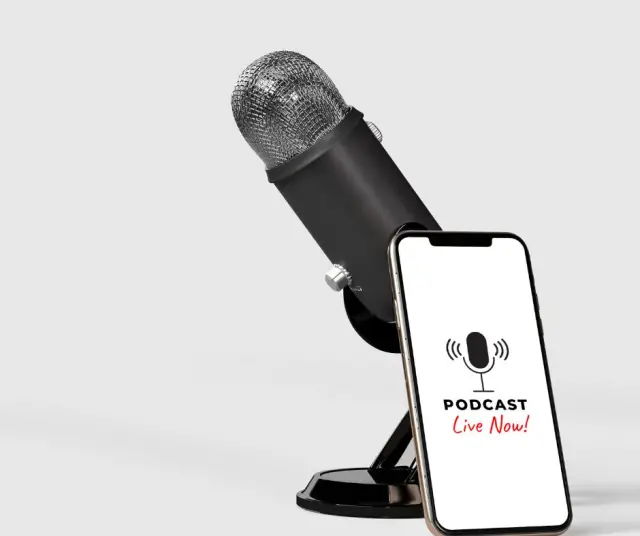Over the last decade, podcasting has emerged as a form of entertainment and education that has revolutionized the way we consume listening content. Since their inception in the early years of the 21st century, podcasts have experienced exponential growth, becoming a multi-billion dollar industry spanning a wide range of topics and genres.
Podcasting is a digital communication medium that allows content creators to produce audio programs, known as podcasts, to be distributed and consumed over the Internet. These programs can address a wide range of topics, from news and politics to entertainment, education, culture and much more.
The podcasting phenomenon has its roots in traditional radio and the rise of digital technology. Although the distribution of audio programs over the Internet existed before the term "podcasting" was coined, it was the convergence of several factors that led to its birth and subsequent explosion of popularity.
Radio, since its invention in the early 20th century, has been a powerful medium to inform, entertain and connect people locally, nationally and internationally. For decades, radio stations have been the main source of entertainment and news for millions of listeners around the world. However, as technology advanced, new ways of consuming auditory content emerged.
The rise of the Internet and the popularization of digital music players, such as Apple's iPod, laid the foundation for what would become podcasting. The ability to quickly and easily transfer audio files over the web opened up new possibilities for content creators and consumers alike. Instead of relying on traditional radio stations or television programming, listeners now had the freedom to choose what to listen to and when.
The term "podcasting" was first coined in 2004, thanks to journalist Ben Hammersley, who wrote an article for the British newspaper The Guardian describing the emerging trend of creating audio programs to be downloaded and listened to on portable devices. Although Apple's iPod was the device that inspired the name, the underlying technology allowed playback on a wide range of devices, from MP3 players to personal computers.
One of the first widely recognized podcasts was "The Ricky Gervais Show", launched in 2005. This show, hosted by British comedian Ricky Gervais and his colleagues Stephen Merchant and Karl Pilkington, gained a huge fan base and helped popularize the format. . From then on, podcasting experienced exponential growth, with thousands of new shows emerging across a variety of topics and genres.
The rise of podcasting was not only driven by technological advances, but also by changes in media consumption culture. Listeners were increasingly looking for on-demand content that fit their interests and schedules, and podcasting offered just that. With the ability to download and listen to shows anytime, anywhere, podcasts have become ideal companions for the daily commute, workout sessions, or just relaxing at home.
The Podcasting Boom
As the 2010s progressed, podcasting experienced explosive growth. Platforms like iTunes and Spotify began hosting an increasing variety of podcasts, making them easier to discover and play for millions of people around the world. Advances in technology, such as smartphones and voice assistants, also contributed to the popularization of podcasting by making it more accessible and convenient for the general public.
The appeal of podcasting lies in its diversity of content and flexible format. From news shows and political debates to true crime stories and improvised comedy, there's a podcast for virtually any interest or hobby. Additionally, the on-demand nature of the format allows listeners to consume content on their own schedule and at their own pace, making it an attractive option for those seeking entertainment or information while on the go.
Podcasting has not only changed the way we consume audio content, but it has also had a significant impact on popular culture and the entertainment industry as a whole. Many podcasters have become celebrities in their own right, with devoted followers and lucrative endorsement deals supporting their shows. Additionally, podcasting has expanded the reach of voices and perspectives that may have otherwise been marginalized by traditional media. Independent and niche podcasts have allowed people from diverse backgrounds to share their experiences and knowledge with a global audience, contributing to greater diversity and representation in the media space.
The Future of Podcasting
As podcasting continues to mature as an industry, it is expected to continue to evolve and diversify in the coming years. With the growing popularity of smart devices and artificial intelligence, we are likely to see new forms of interaction and personalization in the listening experience. For example, voice assistants can help listeners find and recommend podcasts based on their personal interests and preferences.
Additionally, podcasting monetization will continue to be an important topic as creators look for ways to generate sustainable income from their shows. While advertising and sponsorships have long been the main source of income for many podcasters, we may see a greater emphasis on subscription models and exclusive memberships in the future.
